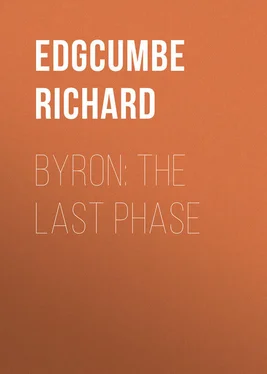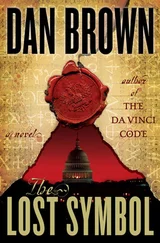Richard Edgcumbe - Byron - The Last Phase
Здесь есть возможность читать онлайн «Richard Edgcumbe - Byron - The Last Phase» — ознакомительный отрывок электронной книги совершенно бесплатно, а после прочтения отрывка купить полную версию. В некоторых случаях можно слушать аудио, скачать через торрент в формате fb2 и присутствует краткое содержание. Жанр: literature_19, Поэзия, foreign_antique, foreign_prose, foreign_poetry, Биографии и Мемуары, на английском языке. Описание произведения, (предисловие) а так же отзывы посетителей доступны на портале библиотеки ЛибКат.
- Название:Byron: The Last Phase
- Автор:
- Жанр:
- Год:неизвестен
- ISBN:нет данных
- Рейтинг книги:3 / 5. Голосов: 1
-
Избранное:Добавить в избранное
- Отзывы:
-
Ваша оценка:
- 60
- 1
- 2
- 3
- 4
- 5
Byron: The Last Phase: краткое содержание, описание и аннотация
Предлагаем к чтению аннотацию, описание, краткое содержание или предисловие (зависит от того, что написал сам автор книги «Byron: The Last Phase»). Если вы не нашли необходимую информацию о книге — напишите в комментариях, мы постараемся отыскать её.
Byron: The Last Phase — читать онлайн ознакомительный отрывок
Ниже представлен текст книги, разбитый по страницам. Система сохранения места последней прочитанной страницы, позволяет с удобством читать онлайн бесплатно книгу «Byron: The Last Phase», без необходимости каждый раз заново искать на чём Вы остановились. Поставьте закладку, и сможете в любой момент перейти на страницу, на которой закончили чтение.
Интервал:
Закладка:
‘Can I reflect on my present position without bitter feelings? Exiled from my country by a species of ostracism – the most humiliating to a proud mind, when daggers and not shells were used to ballot, inflicting mental wounds more deadly and difficult to be healed than all that the body could suffer. Then the notoriety that follows me precludes the privacy I desire, and renders me an object of curiosity, which is a continual source of irritation to my feelings. I am bound by the indissoluble ties of marriage to one who will not live with me, and live with one to whom I cannot give a legal right to be my companion, and who, wanting that right, is placed in a position humiliating to her and most painful to me. Were the Countess Guiccioli and I married, we should, I am sure, be cited as an example of conjugal happiness, and the domestic and retired life we lead would entitle us to respect. But our union, wanting the legal and religious part of the ceremony of marriage, draws on us both censure and blame. She is formed to make a good wife to any man to whom she attaches herself. She is fond of retirement, is of a most affectionate disposition, and noble-minded and disinterested to the highest degree. Judge then how mortifying it must be to me to be the cause of placing her in a false position. All this is not thought of when people are blinded by passion, but when passion is replaced by better feelings – those of affection, friendship, and confidence – when, in short, the liaison has all of marriage but its forms, then it is that we wish to give it the respectability of wedlock. I feel this keenly, reckless as I appear, though there are few to whom I would avow it, and certainly not to a man.’
There is much in this statement which it is necessary for those who wish to understand Byron’s position at the close of his life to bear in mind. We may accept it unreservedly, for it coincides in every particular with conclusions independently arrived at by the present writer, after a long and patient study of all circumstances relating to the life of this extraordinary man. At the period of which we write – the last phase in Byron’s brief career – the poet was, morally, ascending.
His character, through the fire of suffering, had been purified. Even his pride – so assertive in public – had been humbled, and he was gradually and insensibly preparing himself for a higher destiny, unconscious of the fact that the hand of Death was upon him. ‘Wait,’ he said, ‘and you will see me one day become all that I ought to be. I have reflected seriously on all my faults, and that is the first step towards amendment.’
CHAPTER IV
Certain it is, that in proportion to the admiration which Byron’s poetic genius excited, was the severity of the censure which his fellow-countrymen bestowed on his defects as a man. The humour of the situation no doubt appealed to Byron’s acute sense of proportion, and induced him to feed the calumnies against himself, by painting his own portrait in the darkest colours. Unfortunately, the effects of such conduct long survived him; for the world is prone to take a man at his own valuation, and ‘hypocrisy reversed’ does not enter into human calculations. It is unfortunate for the fame of Byron that his whole conduct after the separation was a glaring blunder, for which no subsequent act of his, no proof of his genius, could by any possibility atone.
Truth told, the obloquy which Byron had to endure, after Lady Byron left him, was such as might well have changed his whole nature. It must indeed have been galling to that proud spirit, after having been humbly asked everywhere, to be ostentatiously asked nowhere. The injustice he suffered at the hands of those who were fed on baseless calumnies raised in his breast a feeling of profound contempt for his fellow-creatures – a contempt which led him into many follies; thus, instead of standing up against the storm and meeting his detractors face to face, as he was both capable of and justified in doing, he chose to leave England under a cloud, and, by a system of mystification, to encourage the belief that he thoroughly deserved the humiliation which had been cast upon him. As a consequence, to employ the words of Macaulay,
‘all those creeping things that riot in the decay of nobler natures hastened to their repast; and they were right; they did after their kind. It is not every day that the savage envy of aspiring dunces is gratified by the agonies of such a spirit, and the degradation of such a name.’
Lady Blessington tells us that Byron had an excellent heart, but that it was running to waste for want of being allowed to expend itself on his fellow-creatures. His heart teemed with affection, but his past experiences had checked its course, and left it to prey on the aching void in his breast. He could never forget his sorrows, which in a certain sense had unhinged his mind, and caused him to deny to others the justice that had been denied to himself. He affected to disbelieve in either love or friendship, and yet was capable of making great sacrifices for both.
‘He has an unaccountable passion for misrepresenting his own feelings and motives, and exaggerates his defects more than an enemy could do; and is often angry because we do not believe all he says against himself. If Byron were not a great poet, the charlatanism of affecting to be a Satanic character, in this our matter-of-fact nineteenth century, would be very amusing: but when the genius of the man is taken into account, it appears too ridiculous, and one feels mortified that he should attempt to pass for something that all who know him rejoice that he is not. If Byron knew his own power, he would disdain such unworthy means of attracting attention, and trust to his merit for commanding it.’
As Lady Blessington remarks in her ‘Conversations of Lord Byron,’ from which we have largely quoted, Byron’s pre-eminence as a poet gives an interest to details which otherwise would not be worth mentioning. She tells us, for instance, that one of the strongest anomalies in Byron was the exquisite taste displayed in his descriptive poetry, and the total want of it that was so apparent in his modes of life.
‘Fine scenery seemed to have no effect upon him, though his descriptions are so glowing, and the elegancies and comforts of refined life Byron appeared to as little understand as value.’
Byron appeared to be wholly ignorant of what in his class of life constituted its ordinary luxuries.
‘I have seen him,’ says Lady Blessington, ‘apparently delighted with the luxurious inventions in furniture, equipages, plate, etc., common to all persons of a certain station or fortune, and yet after an inquiry as to their prices – an inquiry so seldom made by persons of his rank – shrink back alarmed at the thought of the expense, though there was nothing alarming in it, and congratulate himself that he had no such luxuries, or did not require them. I should say that a bad and vulgar taste predominated in all Byron’s equipments, whether in dress or in furniture. I saw his bed at Genoa, when I passed through in 1826, and it certainly was the most vulgarly gaudy thing I ever saw; the curtains in the worst taste, and the cornice having his family motto of “Crede Byron” surmounted by baronial coronets. His carriages and his liveries were in the same bad taste, having an affectation of finery, but mesquin in the details, and tawdry in the ensemble . It was evident that he piqued himself on them, by the complacency with which they were referred to.’
In one of Byron’s expansive moods – and these were rare with men, though frequent in the society of Lady Blessington – Byron, speaking of his wife, said:
‘I am certain that Lady Byron’s first idea is, what is due to herself; I mean that it is the undeviating rule of her conduct. I wish she had thought a little more of what is due to others. Now, my besetting sin is a want of that self-respect which she has in excess ; and that want has produced much unhappiness to us both. But though I accuse Lady Byron of an excess of self-respect, I must in candour admit, that if any person ever had an excuse for an extraordinary portion of it, she has; as in all her thoughts, words, and deeds, she is the most decorous woman that ever existed, and must appear a perfect and refined gentlewoman even to her femme-de-chambre . This extraordinary degree of self-command in Lady Byron produced an opposite effect on me. When I have broken out, on slight provocations, into one of my ungovernable fits of rage, her calmness piqued, and seemed to reproach me; it gave her an air of superiority, that vexed and increased my wrath. I am now older and wiser, and should know how to appreciate her conduct as it deserved, as I look on self-command as a positive virtue, though it is one I have not the courage to adopt.’
Читать дальшеИнтервал:
Закладка:
Похожие книги на «Byron: The Last Phase»
Представляем Вашему вниманию похожие книги на «Byron: The Last Phase» списком для выбора. Мы отобрали схожую по названию и смыслу литературу в надежде предоставить читателям больше вариантов отыскать новые, интересные, ещё непрочитанные произведения.
Обсуждение, отзывы о книге «Byron: The Last Phase» и просто собственные мнения читателей. Оставьте ваши комментарии, напишите, что Вы думаете о произведении, его смысле или главных героях. Укажите что конкретно понравилось, а что нет, и почему Вы так считаете.












